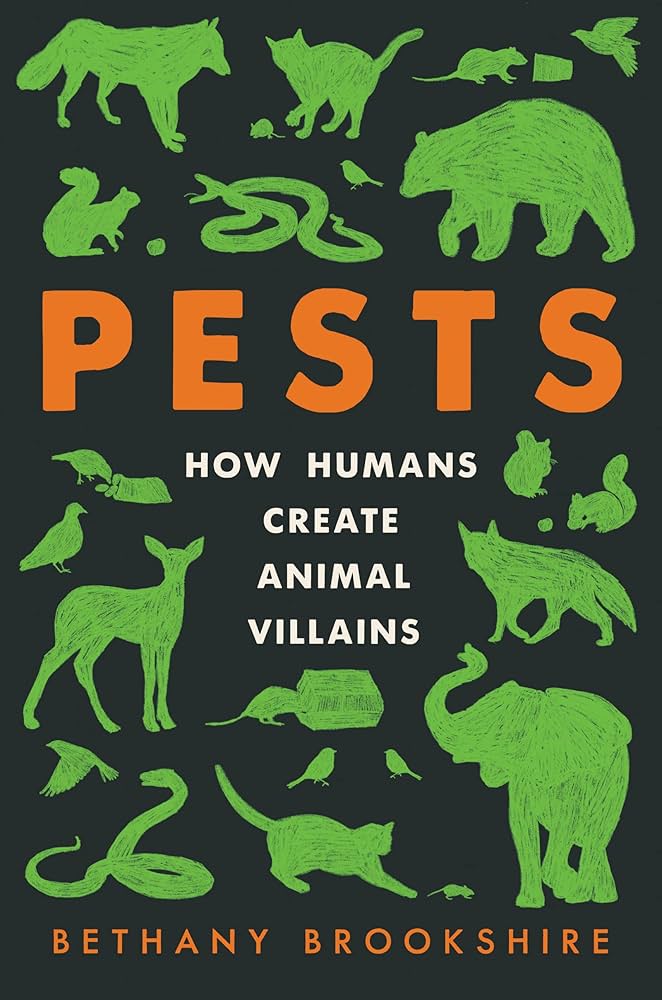-
3 stars
Maybe I'm just too used to reading nonfiction published from university presses and academia in general, but this felt more colloquial and less informative than I usually prefer. I get that there's a market for this kind of less intimidating pop sci nonfiction to bring in readers that normally wouldn't give it a shot, but I guess I just wanted something with a little more meat on the bones.
I appreciate that the introduction lays down the gauntlet that the book will only be dealing with vertebrates, because when I hear the word, "pest," my first thoughts point to any number of bugs: cockroaches, flies, mosquitoes, termites, ants, centipedes, etc. None of those guys show up here, but we get a good variety of animals from the usual suspects (mice, rats), to the "yeah, I guess so" critters (deer, pigeons), and even to the "didn't know that was a problem" …
Maybe I'm just too used to reading nonfiction published from university presses and academia in general, but this felt more colloquial and less informative than I usually prefer. I get that there's a market for this kind of less intimidating pop sci nonfiction to bring in readers that normally wouldn't give it a shot, but I guess I just wanted something with a little more meat on the bones.
I appreciate that the introduction lays down the gauntlet that the book will only be dealing with vertebrates, because when I hear the word, "pest," my first thoughts point to any number of bugs: cockroaches, flies, mosquitoes, termites, ants, centipedes, etc. None of those guys show up here, but we get a good variety of animals from the usual suspects (mice, rats), to the "yeah, I guess so" critters (deer, pigeons), and even to the "didn't know that was a problem" animals (elephants in Kenya, pythons in the Everglades). And while there are occasional discussions of ~what makes an animal a pest?~, for the most part this reads as a series of personal anecdotes where the author got a stipend from the publisher to travel the world and speak to experts in a narrow field. Again, nothing wrong with that kind of book, but not what I typically read.
I wish the conclusions (for each chapter but also for the overall book) were a little stronger and landed on something more substantial than, "maybe we can be nicer to the animals around us." This felt afraid to commit one way or the other: instead of arguing either in favor of a maximum conservationist, "all animals are sacred" approach or a, "fuck 'em, let's kill them all" power fantasy we landed somewhere in the middle. And I find myself maybe a little more informed, but not persuaded to change my attitude towards the wildlife around me.
But if you hate nonfiction books but want to read one just to say that you did, this is decently approachable.


